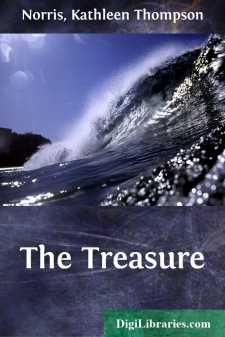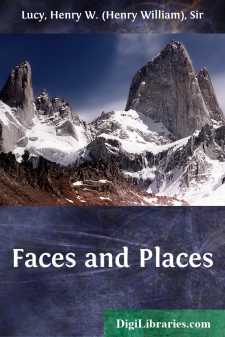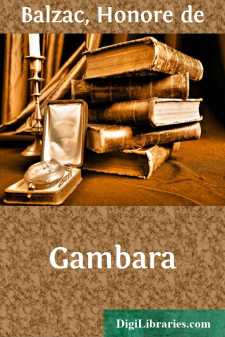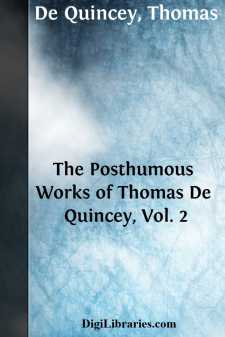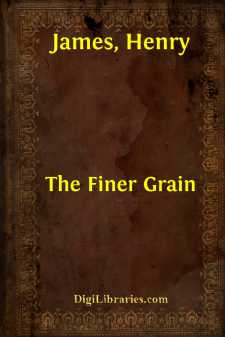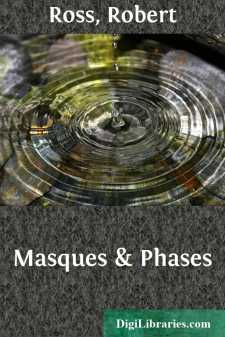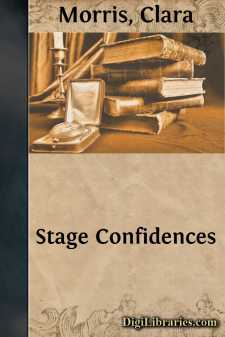Literary Collections
- American 84
- Ancient, Classical & Medieval 14
- Asian 1
- Australian & Oceanian 1
- Canadian 55
- Continental European 121
- English, Irish, Scottish, Welsh 179
- Essays 160
- General 24
- Letters 46
- Middle Eastern 1
Literary Collections Books
Sort by:
CHAPTER I Lizzie, who happened to be the Salisbury's one servant at the time, was wasteful. It was almost her only fault, in Mrs. Salisbury's eyes, for such trifles as her habit of becoming excited and "saucy," in moments of domestic stress, or to ask boldly for other holidays than her alternate Sunday and Thursday afternoons, or to resent at all times the intrusion of any person,...
more...
by:
William Carleton
CHAPTER I.—A strong Farmer's Establishment and Family. It was one summer morning, about nine o'clock, when a little man, in the garb and trim of a mendicant, accompanied by a slender but rather handsome looking girl about sixteen, or it may be a year more, were upon their way to the house of a man, who, from his position in life, might be considered a wealthy agriculturist, and only a step...
more...
by:
Horatio Nelson
LETTER XL. Victory, under Majorca, January 13th, 1804. MY OWN DEAR BELOVED EMMA, I received, on the 9th, your letters of September 29th, October 2, 7, 10, 12, 17th, November 5th, 8th, to the 24th: and I am truly sensible of all your kindness and affectionate regard for me; which, I am sure, is reciprocal, in every respect, from your own Nelson. If that Lady Bitch knew of that person's...
more...
CHAPTER I. "FRED" BURNABY I made the acquaintance of Colonel Fred Burnaby in a balloon. In suchstrange quarters, at an altitude of over a thousand feet, commenced afriendship that for years was one of the pleasantest parts of my life,and remains one of its most cherished memories. It was on the 14th of September, 1874. A few weeks earlier two Frenchaeronauts, a Monsieur and Madame Duruof,...
more...
by:
John Wilson
There is a fine and beautiful alliance between all pastimes pursued on flood, field, and fell. The principles in human nature on which they depend, are in all the same; but those principles are subject to infinite modifications and varieties, according to the difference of individual and national character. All such pastimes, whether followed merely as pastimes, or as professions, or as the immediate...
more...
by:
Honore de Balzac
GAMBARA New Year's Day of 1831 was pouring out its packets of sugared almonds, four o'clock was striking, there was a mob in the Palais-Royal, and the eating-houses were beginning to fill. At this moment a coupe drew up at the perron and a young man stepped out; a man of haughty appearance, and no doubt a foreigner; otherwise he would not have displayed the aristocratic chasseur who attended...
more...
INTRODUCTION. All that needs to be said in the way of introduction to this volume will best take the form of notes on the articles which it contains. I. 'Conversation and S. T. Coleridge.' This article, which was found in a tolerably complete condition, may be regarded as an attempt to deal with the subject in a more critical and searching, and at the same time more sympathetic and inclusive...
more...
by:
Henry James
HE thought he had already, poor John Berridge, tasted in their fulness the sweets of success; but nothing yet had been more charming to him than when the young Lord, as he irresistibly and, for greater certitude, quite correctly figured him, fairly sought out, in Paris, the new literary star that had begun to hang, with a fresh red light, over the vast, even though rather confused, Anglo-Saxon horizon;...
more...
by:
Robert Ross
It is a common error to confuse the archæologist with the mere collector of ignoble trifles, equally pleased with an unusual postage stamp or a scarce example of an Italian primitive. Nor should the impertinent curiosity of local antiquaries, which sees in every disused chalk-pit traces of Roman civilisation, be compared with the rare predilection requisite for a nobler pursuit. The archæologist...
more...
by:
Clara Morris
CHAPTER I A WORD OF WARNING Every actress of prominence receives letters from young girls and women who wish to go on the stage, and I have my share. These letters are of all kinds. Some are extravagant, some enthusiastic, some foolish, and a few unutterably pathetic; but however their writers may differ otherwise, there is one positive conviction they unconsciously share, and there is one question...
more...


